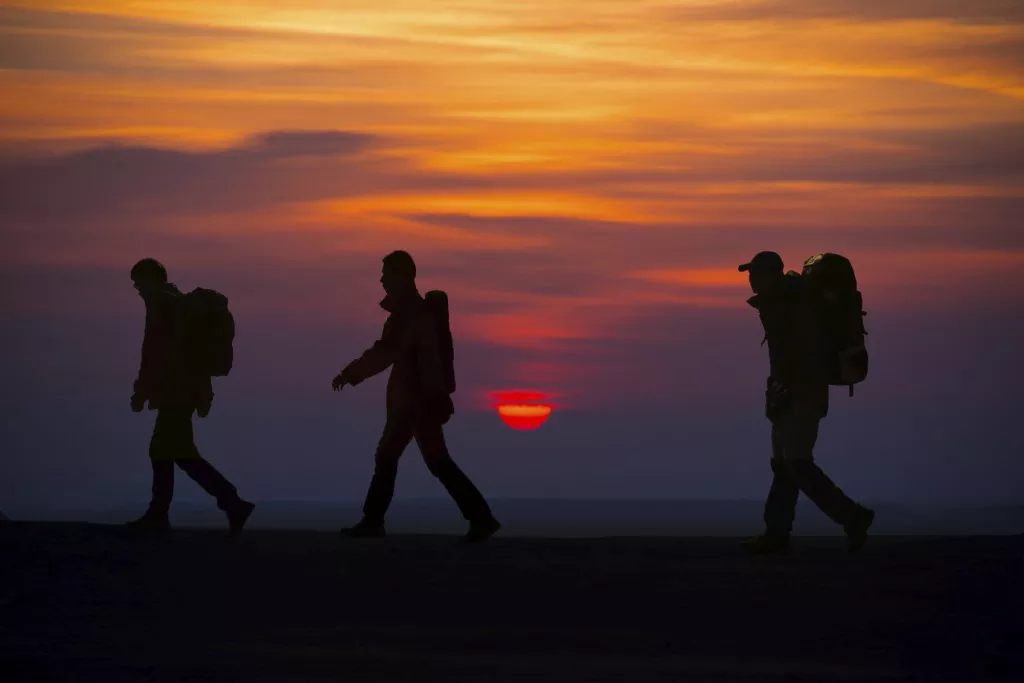Tips for Hiking at Night
Getting stuck in the dark on a hike can be a scary and potentially dangerous ordeal if it's not in your plans. However, with the right preparation and mindset, taking a nighttime hike (an intentional one, that is) can be a truly rewarding experience. You may be surprised how much more acutely you're aware of the sights and smells around you when there's less visual information to be had.
Of course, in many ways night-hiking is a lot like hiking during the daytime. You still need to let people know where you're going and when you should be back, and you definitely still need to follow all the standard safety and conservation guidelines that you would on a daytime hike.
That said, there are some significant differences, and that's precisely why we've taken the time to compile this list. So before you wander off into the darkness, check out our tips for hiking at night:
SEEING IN THE DARK TAKES TIME, EVERY TIME
Before you go on a night-hike, one of the most important steps is to allow your eyes to adjust to the darkness. Just like when you step indoors after being out in bright sunlight, the forest isn't quite as dark as it initially seems. You simply need to let your eyes acclimate.
That, however, takes time. The 'rods' in our retinas that are responsible for low-light vision take 30 to 45 minutes (and in some cases even longer) to attain their maximum level of sensitivity after being exposed to bright light (like the dome light that came on when you stepped out of the car). No matter how often you night-hike, your eyes will always take about the same period of time to acclimate.
Rather than an obstacle between you and your hike, treat this period as an opportunity to quiet your mind and just listen to the sounds of the forest.
SAFETY FIRST
While hiking at night can certainly be done safely and responsibly, the bottom line is that it does present a greater concern to safety than hiking in the daylight. Here are a few ways to make your night hike as safe as possible:
Safety in numbers - As with any outdoor excursion, it's always a good idea to bring friends along. In the case of a medical or other emergency, you won't want to be out there alone, especially in the dark. Additionally, the noise made by larger groups can help to scare off potential predators.
Know Your Trail - This is especially important if you've never done a night hike before. Start with trails that you and your companions are familiar with, that way you're less likely to get confused or lost, and you'll already be aware of potential hazards like roots on the trail that may trip you up.
Don't rush - In addition to keeping you from fully enjoying the splendor of your surroundings, moving too quickly on a night hike will increase your chances of injury. Our depth perception is less accurate in low-light situations. Moving more slowly will help you to see obstacles that could result in a trip or fall before you step on them.
Bring a light, but don't use it unless you have to - Using a light can ruin your night vision for up to a half-hour but if you ever get in a serious pinch, you'll be glad you have it. Most headlamps -- even the cheap ones -- have a red light setting that will be much less damaging to your night vision.
Know your gear - If you'll be hiking at night, you need to be familiar enough with all of your gear that you can find it in your pack and use it in the darkness. After all, why bring a headlamp if you can't find it and turn it on? Take a little time to get comfortable with your gear, and make sure everything is good to go (e.g., electronic items charged, knives sharp, know how to use your compass etc.).
THINGS NOT TO DO WHILE ON A NIGHT HIKE
Now that we've covered some good ideas for night-hiking, let's briefly go over some bad ones. As we mentioned earlier, hiking at night does pose a greater risk to your safety than hiking during the day.
While on a night hike, you definitely should not:
Go alone - We said it earlier and we'll say it again. Bring friends, especially if you're new to night-hiking. There are a million things that could go wrong, and you don't want to be without a helping hand if they do.
Play practical jokes - Though the darkness of a night hike may seem like the perfect opportunity to give your buddies a good scare, the potential for injury or getting lost is simply too great. A kneejerk reaction could result in one of your fellow campers running of into the woods, tripping, tripping, falling, or even attacking you in what they believe to be self-defense. Don't do it.
